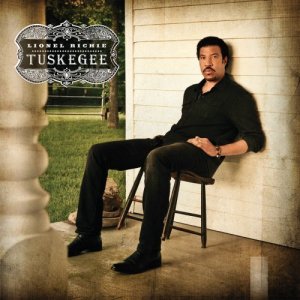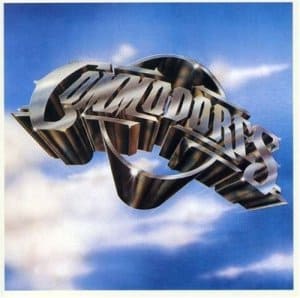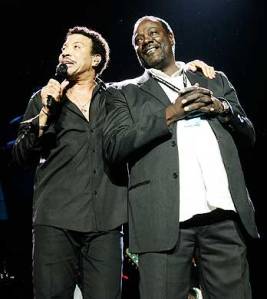Hello…It’s Lionel Richie! (Interview)
Lionel Richie is due to tour New Zealand in March, sharing a bill with John Farnham. The 13th Floor’s Marty Duda spoke to the former Commodore recently and discovered that Lionel is busy working on his first album of new, original material since 2006. He also found Mr. Richie to be a very easy-to-talk-to, engaging interview subject who was happy to discuss his songwriting secrets and the anger he felt when his songwriting took him to unexpected resulting in accusatioms that he had “left his roots”. So, listen in to the one and only Lionel Richie here:
Or, read a transcription of the interview here:
MD: I’m in Auckland, where abouts are you today?
Lionel: My friend I am here in lovely Los Angeles, California in probably one of the strangest settings ever… it’s called my house.
MD: And why is it so strange?
Lionel: Because I very seldom get here. So when I see the dog looking at me walking down the hall, he looks at me and goes, ‘Well who are you? When did you get back?’
MD: Well I know you were on tour until the end of last year. I think you played your last show at the Hollywood Bowl. What have you been up to since then?
Lionel: Well actually it’s been that and then we go to private shows. And then we try to do what we call a new album. And I use the word try, because I love it when the world is calling and you say, ‘Guys I want to block out two months where I’m doing nothing but recording’, and some guy will call up from Istanbul and he says, ‘I’m getting married and I want Lionel Richie to sing for my daughter’. And the answer is, ‘I’m really busy thank you very much’, and he says, ‘No, you listen; I want you to be here right now’! And then he calls off some God awful number and I say you know we can break for a couple of days (laughs). We can break. What the hell, I’m always one to see Istanbul at this time of the year.
MD: Tough man, it’s tough.
Lionel: It’s a tough one.
MD: So what can you tell me about the new record?
Lionel: The new record is going to be a little bit of everything that you’ve ever fallen…what I decided to do now was just go back and do a Lionel Richie record. We don’t try to do anything trendy. I didn’t plan on writing Sail On to be a country song. It was an R&B song that just happened to go country. I didn’t plan on All Night Long to be as big as it was with the Olympics. So I decided instead of trying to follow trends of all the things that are happening with the music world, just write me another record as it comes out of my head and I think that’ll do just fine. It’s going to be a little collaboration here and there but most of the songs will be 150% mine.
MD: It’s good because I was hoping to talk to you about song writing a bit. I realised the last album you had with your own songs on it was in 2006. I was wondering if song writing was still coming as quickly and as easily as it has in the past?
Lionel: It comes as quickly and as easily. I think what has happened a lot of times is everyone came and got this new word called “format”. And everybody said, ‘Well you know, Lionel, are you on the dance format or are you in the easy listening format?’ I said, ‘Guys I’m in the song format!’ You know so I’m gonna get out of that. I’m not going to start talking about formats. The last couple of albums you heard were trying to fall into some kind of format. And you know what, I kinda got over that. So I think now with the success of the Tuskegee album, realising that the melody was going to be king no matter what. No matter what I’m trying to do, the melody is going to be stronger than anything. To go back and trust that and let it go. I’m actually very excited about this record.
 MD: Were you surprised at the success of Tuskegee?
MD: Were you surprised at the success of Tuskegee?
Lionel: I was blown away. Marty, I was pleasantly surprised. Well first of all, just imagine you go into Nashville, Tennessee and I’ve got a couple of songs I know are clearly country. And when you open the door and you say, ‘Anybody like to participate in this record?’ And the doors were blown open. That’s number one. And number two, Rascal Flatts came in and said, ‘We wanna do Dancing on the Ceiling’. And I say, ‘Guys Dancing on the Ceiling is about as far away from country as I can imagine’. And they said, ‘Maybe to you but not to us’. So that’s the magic. That’s why we went.
Click here to listen to Rascal Flatts & Lionel Richie’s recording of Dancing On The Ceiling:
MD: Right. So song writing wise do you have certain kinds of strategies to get yourself going? Are there routines? Anything to get the process started?
Lionel: First thing I always tell people every day is, about maybe thirty years ago I learned a trick, it’s called…don’t think about what you’re gonna write. Because, guaranteed, I will sit down, it is the saddest day of my life. Someone might have died or whatever the case may be, and I am gonna write the saddest song I can think of, and I write All Night Long. And then I’ll say, ‘OK, I’m happy, this is the happiest day of my life’. And I write a song called Still. So now what I do is just sit down at the keyboard and whatever comes out of my head just make sure something’s being recorded so I can play it back because, truly, it’s like receiving. You’re receiving from another place. And every time I try to plan something…now in the case of the one time we planned it would probably be We Are The World, because I was writing with Michael and we had to actually talk that one out. But he’s a Martian; so it’s easy when you’re sitting down with a fellow Martian and you go, ‘Ok, what are we doing?
MD: I was going to ask if it was a different process when you co-write with someone.
Lionel: Absolutely. You have to be really open to, I call it, mistakes and all. In other words, you have to dare to be stupid in front of someone. Whereas if you are by yourself you can throw out some stupid thing and go, ‘Nah that’s ridiculous’. You know, but when you’re standing there with somebody else and you go, ‘Ok now, he thinks I’m a genius’. So you have to dare to be silly and basically just very loose and throw out everything that’s in your head because what may appear to be absolutely insane is exactly what they can use to further the song. You have to be very open.
MD: When did you first realise you could write songs?
Lionel: First of all, I thought that song writing meant you had to be able to read and write music. So I probably…I was receiving probably about five or six years before I knew there was a group called The Commodores. Back in my elementary and high school days. But I didn’t know what to do with it because basically what that was called, ‘me singing in the shower’. I just didn’t know that the songs I was singing in the shower were not recorded and therefore they didn’t mean anything. But it wasn’t until I actually joined Motown at the last minute…I didn’t think I was a songwriter until I had a chance to really hang out and watch Marvin Gaye record, watch Stevie Wonder record. And then I realised, ‘Wait a minute, where’s the music?’ I realized these guys can’t read or write music. And so once I discovered that you don’t have to have a diploma to be able to hear a new song, then I was a songwriter, babe. It was pretty much the beginnings of The Commodore era into Motown, was where the bell went off.
MD: It’s interesting because it’s kind of a similar thing that happened with punk rock in the 70’s. Where suddenly people realised you don’t have to be an amazing musician to be in a band. Anybody can do it; The Ramones can do it, so could you. I guess that kind of goes off with song writing things as well. You just need to be enabled I guess.
Lionel: Yeah, the thing about it. It really is almost like riding a bike. One minute you can’t figure out how that thing works at all and you keep falling off and it requires some balance. Meanwhile there are people walking down the street with their feet on the handlebars…. ‘How are you able to do that crap?’ And then all of a sudden one day it clicks in your brain; ok this is how it works. Well, the same thing happens in song writing. There’s a place that you go in your head. The best way I describe it to people is when I was in elementary and high school my instructors would always say, ‘Mr Richie, would you like to join the rest of the class?’ I was daydreaming. Well that place where I was daydreaming is where you go to get the songs.
 MD: I was hoping to get a little more specific. I noticed on the 1977 Commodores album…
MD: I was hoping to get a little more specific. I noticed on the 1977 Commodores album…
Lionel: Oh you’re good.
MD: …that album has both Brick House and Easy on it. And you of course were involved in the writing in both of those… very different types of sounds and vibes…what was going on with you at that point? Was it difficult to do both? Did that just happen?
Lionel: Well again…only until probably the last 10-15 years, we have actually just, I considered, killed ourselves in this word called categories. Everything must fall into a certain genre. Now the answer to the quiz is, that set up great for marketing. That has nothing to do with the songwriter. If I told you that three of the players that played on All Night Long are country guitar players. You follow me? In other words a musician is a musician. There’s no such thing as a country musician. He just happens to play country but he’ll also play classical for you in five minutes. So in song writing it’s the same. If you don’t fall prey to the titles of categories and you lock yourself in; once you lock yourself in, that’s who you are. I can write All Night Long and then write Three Times A Lady and then go back and write Brick House. Your brain, as long as you don’t lock it in, you can do anything. Because it’s twelve notes. And whether you put a steel guitar in it or a symphony orchestra in it. You wanna make a classical Three Times A Lady? I’ll make a classical one for you. You want a country Three Times A Lady? I’ll get a folk guitar and play country. It’s the same song. Just as long as you don’t lock yourself into your nightmare. Because that’s what it is. When you say category, you’ve just locked yourself in.
Click here to listen to Brick House by The Commodores:
Click here to listen to Easy by The Commodores:
MD: Yeah. So I mean that diversity in your song writing I imagine for some people was hard to deal with at the time. Did it cause problems for you?
Lionel: Absolutely. I mean can you imagine we’re a funk bar band? You want a problem? And I bring in a waltz for Three times a Lady. You wanna talk about that a bit? From there, that was a terrifying moment of life. And then from there we went to Sail On, a country song and we’re still supposed to be the bar band. Thank God for Brick House, it kind of gave us back the credibility. But I mean when I say to you that I caused confusion in the hearts and minds of people…cos the first words out of everyone’s mouths was, ‘What the hell are you doing?’ And I kept saying, ‘Well I’m going after the Beatles’. And in the middle of R&B land where every white artist in the world was trying to go after the blues, they were trying to go after black artists, here I am trying to go after Billy Joel and McCartney and you know Stevie Wonder and Marvin Gaye. And they kept looking at me going, ‘What the hell are you doing?’
MD: You mentioned the Beatles and if you think about The Beatles output in the 60’s, they were doing all sorts of stuff. They could do a ballad like Michelle and then they could do Helter Skelter. Do you think because you being a black artist and being in a funk band, there was more negativity against being so diverse?
Lionel: What was the number one question asked of me when I started having these interviews on my own? They said, ‘Lionel how does it feel now that you left your roots?’ And I kept thinking, ‘Wait a minute, did you ask the Rolling Stones this when they said they said they patterned their music after Muddy Waters and Lightning Slim? Did you ask The Beatles after they told you they patterned their music after Chuck Berry? So, all black people must play the blues? Is that what you’re saying?’ I mean but these were the questions. ‘How does it feel now that you left your roots?’ And I kept thinking. ‘Man it feels great’. I don’t know what roots I was supposed to be in.
MD: So I guess, looking back on that, you kind of liberated a lot of people to be able do the kind of music that they feel they want to do.
Lionel: I cannot tell you how many artists have come up to me over the years and go, ’Dude this is the greatest thing you ever did. Because once you won, you let everyone else out the box’. And slowly but surely what they did in the last fifteen years is they have created more boxes. They have more boxes now. Now you can turn on the radio and instead of getting several different varieties of songs, now you get all dance. You go to another channel and you get all ballads. Not realising that the mixture of all that is what makes great radio because your ear doesn’t go flat. If you want another type of music you have to change that station and go to another station. It’s crazy, where you can pick up one station and hear Tony Bennett, right after Tony Bennett there’s going to be The Rolling Stones, right after The Rolling Stones, here comes The Commodores. That’s when you go, ‘Ok we got great music.’
MD: Are there any current artists that you particularly admire, look up to or are impressed with?
 Lionel: I think probably right now for a songwriter artist, Bruno Mars. I’m very impressed with him. I knew him when he had just started and I’ve watched him grow. And he’s the real deal. That little guy is a bad little boy.
Lionel: I think probably right now for a songwriter artist, Bruno Mars. I’m very impressed with him. I knew him when he had just started and I’ve watched him grow. And he’s the real deal. That little guy is a bad little boy.
MD: I’ve seen him perform. And it’s interesting because Bruno started out as a Michael Jackson impersonator. And Michael Jackson started out as a James Brown impersonator. So you gotta start somewhere and then take off and do your own thing.
Lionel: Isn’t that funny…you have to start…look at Prince, look at Michael…they patterned themselves after James Brown and both of them have two completely different stage presentations. But they morphed into who they are. And here comes Bruno, who I think he was an Elvis impersonator and a Michael Jackson impersonator and I saw him in the middle of a show do a James Brown split. The saga continues, you know what I’m saying?
MD: I just saw that you announced you’re playing a show in Dubai. And there is some kind of weird connection between you and Arab men happening. Is that true?
Lionel: Listen, my brother, you know you’ve gotta be able to…some things you just can’t figure out. I cannot tell you Marty, it is, I go to the Middle East and Lionel Richie in the Middle East is like…I think every guy who ever wanted to say whatever they wanted to say to his ladies, I have the formula. Because it’s a love affair down there that I can’t even explain. And I must tell you I’m quite blown away. Because it’s not just a fan…this is fanatical. So when they say, ‘I love you Lionel’, they mean I love you Lionel! What was that article they wrote about me in GQ?…Lionel of Arabia.
MD: I love it!
Lionel: That was a GQ article that they wrote. Lionel Of Arabia. I said I’ll take that.
MD: You’re going to be in New Zealand on this tour next month. I should ask what you have in store for folks. What can they expect?
Lionel: I always like to tell you that I have the best seat in the house. I know that everyone’s expecting what I’m going to do. But if you know anything about my fans, I think they rehearse before I get there, obviously. But I’m not sure what they’re going to do. I’m going to go out and put on the greatest show and right, second verse on of a song, they take over. They do the best dance steps I’ve ever seen before in my life. And they have the best signs. They bring all kinds of signs to communicate with me from the stage. And by the time I leave the stage… they’re exhausted (laughs).
MD: (laughs) And how do you feel?
Lionel: I’m actually kind of sitting there going, ‘This is the best show I’ve ever seen in my life’. But I mean it really is going to be, I believe in interactive shows. It’s not just going to be a respectful sit down and listen to Lionel Richie. And believe me John is the same way. I think that what it’s going to be is one loud show.
MD: And are you premiering any of the new songs you’ve been working on?

Lionel: No, no, no. I’m going to keep that under wraps. What I always do is I don’t like to preview. What I do is I hit you over the head with everything you expect me to sing. The problem that I’m having now, which is a pretty darn good problem to have, is that even after two and a half hours of singing someone’s gonna say to me, ‘You left out this song’. There’s always gonna be one, ‘Lionel, I can’t believe you left out that song’. So what I’m gonna do is try to knock out as many songs that got you engaged, married, divorced, children, whatever the case may be. I’m gonna knock out your entire life right there in front of you. And if I left out anything I’ll see the day I’m around.
MD: And of course your old band mate Ronald LaPread is in New Zealand. Do you make plans to meet up with him?
Lionel: You know Ronald LaPread is not letting me go near a stage without coming close to me. Are you kidding me? And I don’t know how to play with a Commodore in the audience. You have to understand how weird that is. So he hasn’t been notified yet. But I’m sure he’s already got his bass out and already practicing. So the answer to the question…Ronald LaPread in Auckland, New Zealand. Get ready.
MD: Fantastic. It sounds like it’s going to be quite a show. I’m looking forward to catching it. I really appreciate talking to you. It’s been a real pleasure.
Lionel: It’s going to be so much fun. And believe it or not I’m just looking forward to getting down there because when you talk about genuine people, I mean real genuine people, you’re in the land of it right there.
New Zealand Tour dates:
Thursday March 20 – Christchurch, CBS Arena
Saturday March 22 – New Plymouth, TSB Bowl of Brooklands
Sunday March 23 – Auckland, Vector Arena
- Civil War – Dir: Alex Garland (Film Review) - April 9, 2024
- Pearl Jam – Dark Matter (Monkeywrench/Republic) Album Review - April 1, 2024
- Blonde Redhead – New Zealand Tour 2024 - March 14, 2024
